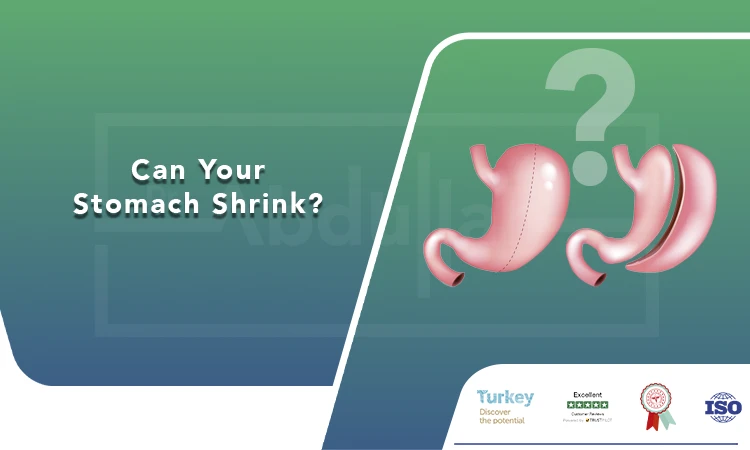The question “Can Your Stomach Shrink?” is often asked by individuals trying to lose weight or control their appetite. While the stomach is an elastic organ that can expand and contract, the idea that it permanently shrinks is a common misconception. However, changes in eating habits and certain medical interventions can affect stomach capacity and how full you feel after eating.

What is Shrinking Stomach?
Shrinking stomach refers to the reduction in stomach capacity or the sensation of feeling full with smaller portions. While the stomach itself does not significantly shrink unless surgically altered, prolonged changes in eating patterns can train the body to feel satiated with less food.
Does Your Stomach Shrink?
Your stomach can contract when it is empty, but its physical size does not shrink permanently without surgical intervention. However, consistently eating smaller meals can reduce hunger signals, making it easier to consume less food over time.
How to Shrink Your Stomach?
Eating smaller portions over an extended period may help in training your stomach to feel full with less food. Incorporating fiber-rich foods, drinking water before meals, and avoiding excessive snacking can also aid in appetite control.
Does Your Stomach Shrink If You Eat Less?
Eating less over time can make your stomach adapt to feeling full with smaller amounts, but it does not permanently reduce the stomach’s physical size. Instead, it alters your hunger hormones, leading to a decrease in appetite.
How Long Does It Take to Shrink Your Stomach?
While stomach size does not drastically change, your appetite can adjust within a few weeks. Studies suggest that dietary changes can start impacting hunger hormones within 2 to 4 weeks.

How Long Does It Take to Naturally Shrink Your Stomach?
If referring to a decrease in appetite rather than physical size, it may take several weeks of consistent portion control. However, for actual reduction in stomach volume, procedures like gastric sleeve surgery are required.
Frequantly Asked Questions
Fasting does not permanently shrink the stomach, but it can temporarily reduce hunger hormone levels, making it easier to eat less when resuming regular meals.
Ozempic, a medication used for diabetes and weight management, does not physically shrink the stomach but slows gastric emptying, helping patients feel full for longer periods.
If referring to appetite reduction, noticeable changes can occur within a few weeks. However, the stomach’s ability to expand remains intact unless surgically altered.
There is no specific treatment for stomach shrinking, but bariatric surgery options such as gastric sleeve or gastric bypass can permanently reduce stomach volume.
Surgical procedures like gastric sleeve surgery can physically reduce stomach size. Non-surgical methods, such as mindful eating and portion control, influence how full you feel but do not alter stomach size permanently.
Aging does not significantly shrink the stomach, but metabolic changes and reduced appetite can lead to a natural decrease in food intake over time.
















